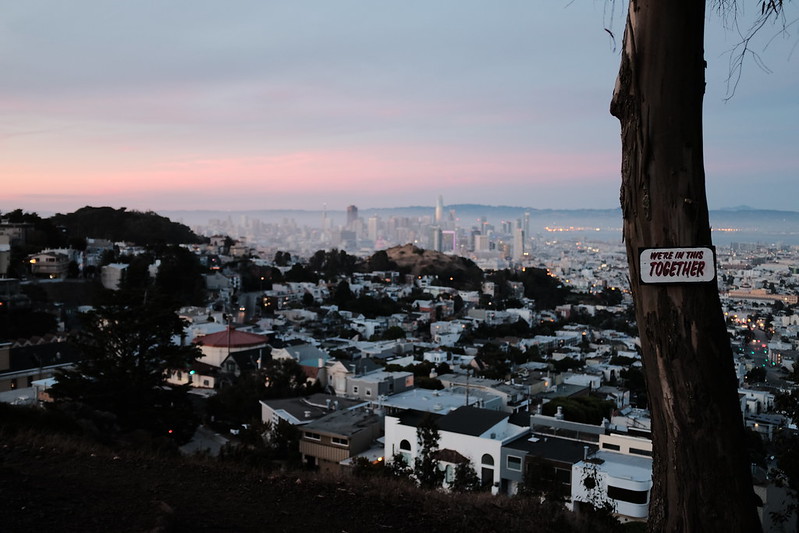Link Log 2020-06-30
A Non-Euclidean View of California as a Cold Place to Be
I don’t think we’re ever going to get to utopia again by going forward, but only roundabout or sideways; because we’re in a rational dilemma, an either/or situation as perceived by the binary computer mentality, and neither the either nor the or is a place where people can live. Increasingly often in these increasingly hard times I am asked by people I respect and admire, “Are you going to write books about the terrible injustice and misery of our world, or are you going to write escapist and consolatory fantasies?” I am urged by some to do one – by some to do the other. I am offered the Grand Inquisitor’s choice. Will you choose freedom without happiness, or happiness without freedom? The only answer one can make, I think is: No.
It’s generally a mistake to make long-term forecasts in the midst of a hurricane, but some outlines of lasting shifts are emerging. First, a government or society’s capacity for technical competence in executing plans matters more than ideology or structure. The most effective arrangements for dealing with the pandemic have been found in countries that combine a participatory public culture of information sharing with operational experts competently executing decisions. Second, hyper-individualist views of privacy and other forms of risk are likely to be submerged as countries move to restrict personal freedoms and use personal data to manage public and aggregated social risks. Third, countries that are able to successfully take a longer view of planning and risk management will be at a significant advantage.
For the ones doing the mobbing, ruining the lives of innocent people is not a bug in their program, it’s an essential feature. There can be no reign of terror when only the guilty are punished.
In his 2018 book New Dark Age, James Bridle identifies the conspiracy theory as an essential coping mechanism of late modernity. He writes, “Surrounded by evidence of complexity, the individual, however outraged, resorts to ever more simplistic narratives in order to regain some control over the situation.” Bridle’s observation has proven especially useful lately, with even the most composed of us experiencing a prolonged sense of collective powerlessness in the face of a global pandemic.
I want my tools to be predictable – to have consistent performance and fail in ways that I understand. Wireless protocols are inherently more complex (because many devices share the same airspace) and have more different ways to fail, so they’re much less predictable than wires. For me, the convenience often isn’t worth that cost.
